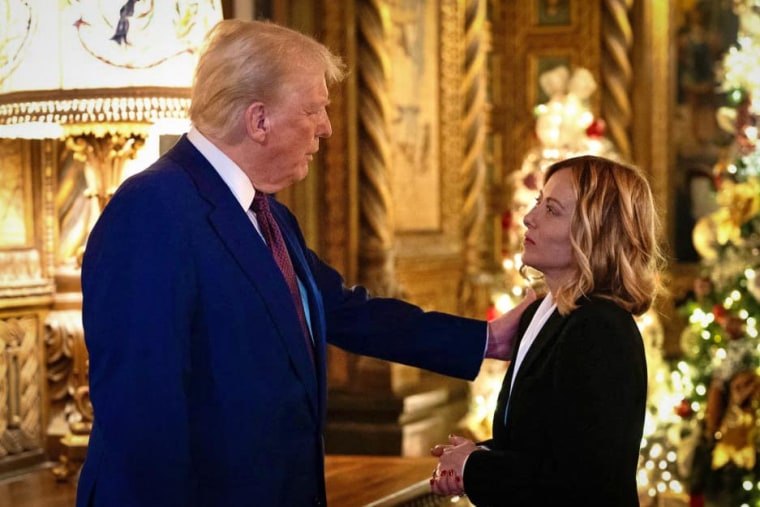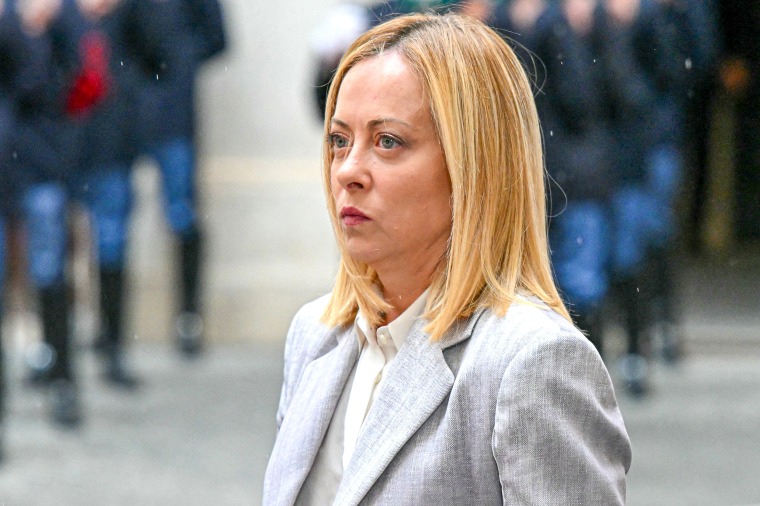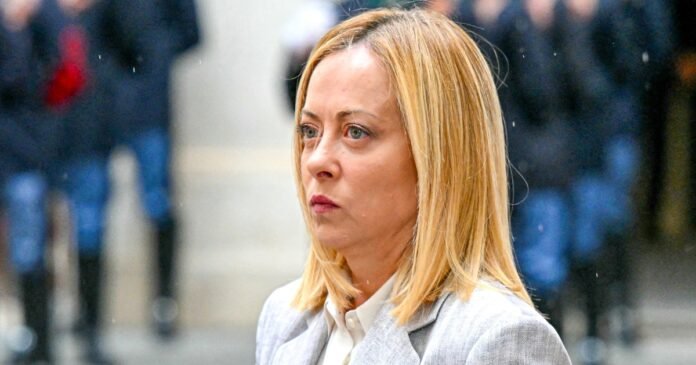President Donald Trump’s latest foreign visitor, Italian Prime Minister Giorgia Meloni, is faced with a tricky balancing act as she tries to foster goodwill between her political family in the European Union and her ideological friend in the White House.
Right now, there is little love lost between these transatlantic trading partners.
The Italian leader is part of a relatively new crop of hard-right European leaders who have developed ties with the Trump administration. Sharing the president’s predilection for hard-line anti-immigration policies, Meloni has gained a reputation as something of a Trump whisperer — the president has called her “a real live wire” and a “fantastic woman.”

Meloni is just one of dozens of leaders scrambling to react to Trump’s sweeping global tariffs. The E.U. faced a 20% tax on all goods sold into the United States, before an international market meltdown saw Trump pause these levies and instead impose a 10% rate across the board.
Trump has claimed countries have been lining up and “kissing my ass” to try to strike deals with his administration.
But Meloni’s Italy is part of the European Union and therefore cannot strike trade deals on its own. It must act in unison with the 27-member trading bloc, which Trump has described as a competitor formed to “screw” over Washington. He has made no secret of his enmity for the E.U. — as with many other international, multilateral organizations — and would prefer to deal one on one.
In this sense, Meloni arrives in Washington as an unofficial ambassador for the E.U., whose real president, Ursula von der Leyen, has not once spoken with Trump since he was sworn in.
The E.U. leader aimed a thinly veiled criticism Wednesday at the “bros” running the White House, telling the German newspaper Die Zeit that Trump’s trade war meant that “the West as we knew it no longer exists.”
Von der Leyen and Meloni had been in regular contact ahead of the trip, a spokesperson for the European Commission told Reuters. And even those centrist European figures who may disagree with Meloni on her hard-line domestic agenda are hoping that she will act as a bridge to Washington.
“Everybody hopes that, but nobody knows what she’s going to be able to achieve,” said Charles Grant, founding director of the Center for European Reform think tank.

Despite her rapport with Trump, Meloni’s Italy is to some extent also “in the doghouse” with Trump’s team, Grant said, because of its low defense spending and trade deficit with Washington — two of Trump’s biggest bugbears.
Italy spends 1.49% of its gross domestic product on its military, lower than NATO’s recommended 2% and only ahead of Canada, Belgium, Luxemburg, Slovenia and Spain, according to the alliance’s latest figures. At the same time, it has a $45 billion trade deficit with the U.S., selling far more goods — mainly manufacturing and medical products, cars and wine — than it buys from the U.S.
This also makes Rome particularly vulnerable to Trump’s tariffs, with American trade making up around 10% of its total exports.
“Whether her personal charm can overcome these problems,” Grant said, “remains to be seen — but I’m sure she will give it a go.”
Meloni is not the first leader headed to the Oval Office with hopes of sanctuary from Trump’s trade storm. Nor will she likely be the last.
On Wednesday, Trump inserted himself directly into negotiations between the Japanese delegation visiting Washington and Treasury Secretary Scott Bessent.
Before stepping back from the brink, Trump initially slapped a 24% tax on all Japanese goods coming into the U.S. Nevertheless, the president’s own glowing view of the talks — championing “Big Progress!” on Truth Social afterward — was echoed by Japan’s chief negotiator, Ryosei Akazawa.
“One of the messages he was sending was that these negotiations with Japan are a top priority,” Akazawa told reporters. “What really impressed me was that he showed that if it’s a task that’s really important to you, is to show leadership and be directly involved.”





